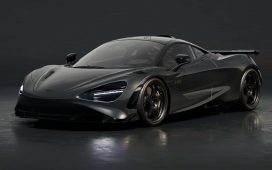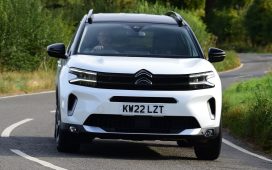
Teslas appeal to buyers who want to project an environmental image. (Bay Area News Group File Photo)
With the recent Chicago Auto Show, talk of electric cars has kicked into high gear. It’s hard to turn on a radio or television and not hear joyful coverage of our grand transition to electric.
But forgotten amid all the happy hype is the fact that electric vehicles are still a small percentage of the whole. Last year, they made up about 5.8% of new light-duty vehicles sold in the United States. And — let’s be honest here — many of those who did buy electric vehicles were early adopters, enthusiasts and environmentalists. The rest have yet to make up their minds, and that’s in part because the price gap between electric and traditional vehicles is still too big.
Consider that in September, the average electric vehicle transaction price was $66,000, according to the consultant Guidehouse Insights. Then consider that the median American household income, according to the 2020 U.S. census, was $67,521 per year. That’s a cost equation that doesn’t bode well for the middle class, let alone for those of more modest income.
In truth, it’s been that way since the beginning of the modern EV era. To understand why, it’s instructive to look at a bit of recent automotive history.
In 2003, electric cars were going nowhere. In an effort to better understand the market, a pair of automotive upstarts named Martin Eberhard and Marc Tarpenning drove up and down the streets of Palo Alto, peering into the driveways of wealthy car owners. Eberhard and Tarpenning, who later founded Tesla, noticed something strange in the driveways. Many had two cars, one of which often fell into the category of an environmental vehicle. They’d see a Lexus and a Prius. Or an Audi and a Prius. Or a Porsche and a Prius.
“Our take on this — as to why customers buy cars — (was that) it isn’t to save money,” Tarpenning told a leadership summit in 2017. “It’s to project their values.” More important, they concluded that environmentalism had come to the doorstep of the wealthy. And they reasoned that there was a select group of buyers who would pay more, not less, for an electric car.
It turned out to be one of the great insights in U.S. marketing history. Until that time, Detroit manufacturers had believed that electric cars should cost less than gas burners. Electric cars, they thought, offered less utility and therefore should be more economical. But here were Eberhard and Tarpenning saying the opposite.
History teaches us that it has become difficult for automakers to compete at the low end of the market, even with gasoline cars. Yet that is precisely where the electric car and its costly battery now need to be headed, if we are to expect EVs to appeal to the middle class.
This unspoken truth needs to be understood — by the media and by consumers. Yet, for some reason, we are still inundated with the idea that electric vehicles will soon be descending upon us like a swarm of Old Testament locusts.
To be sure, the electric car is coming in larger numbers. Its growth will be steady in the coming decade. And it will help chip away at greenhouse gas production. But the larger transition isn’t going to happen without viable alternatives for families making $50,000, $60,000 or $70,000 a year. Those families will need lower price tags. They will not buy cars “to display their values.”
Therein lies the challenge. The question we need to be asking amid all this breathless coverage is whether that can be done.
Because if it can’t, those “end of oil” days may be a lot further off than we think.
Charles J. Murray is a Chicago-area author who writes about the history of technology. ©2023 Chicago Tribune. Distributed by Tribune Content Agency.










